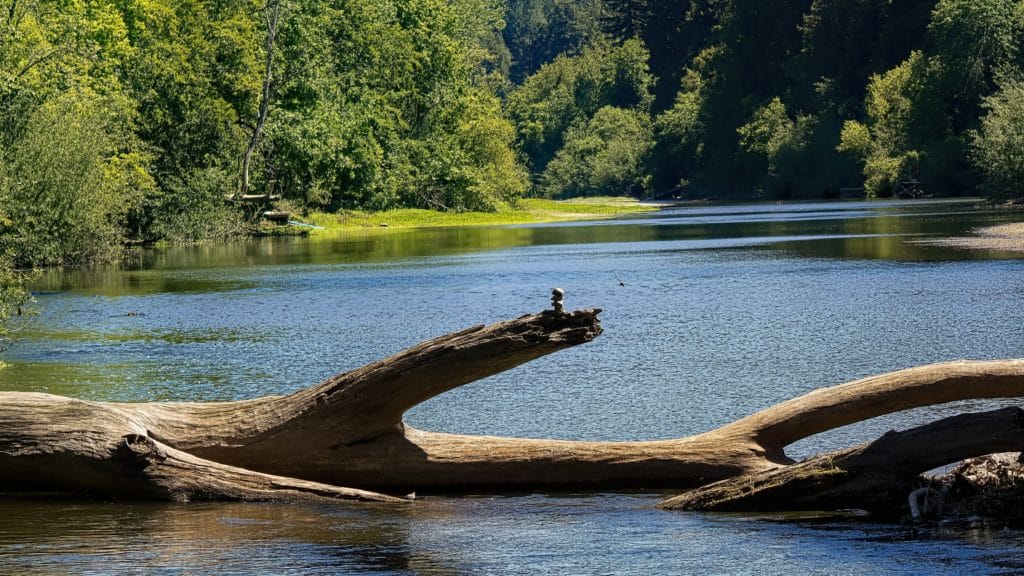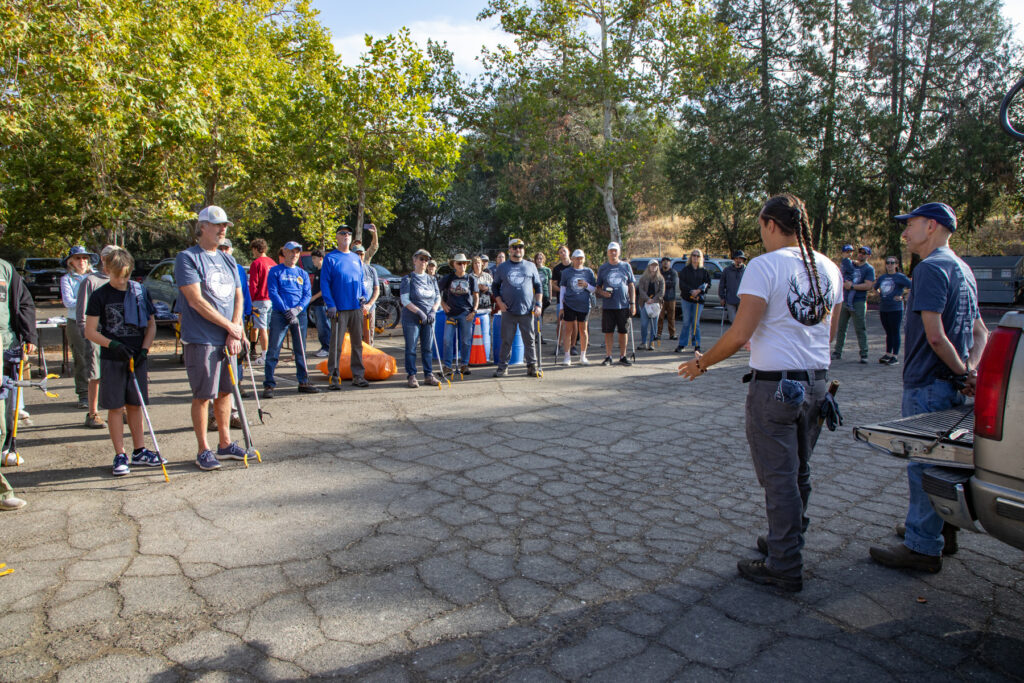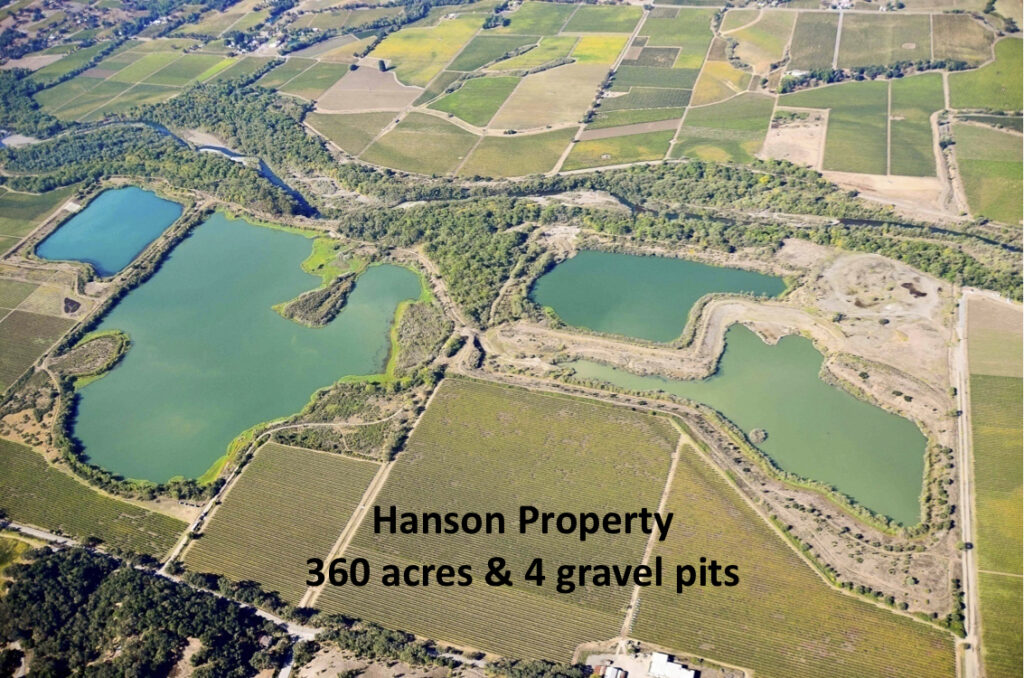This year’s annual Waterkeeper Alliance conference took place in Washington D.C. where Russian Riverkeeper staff was able to attend and collaborate with Waterkeepers from around the world. Waterkeeper Alliance ensures that the world’s Waterkeeper groups are as connected to each other as they are to their local waters, organizing the fight for clean water into a coordinated global movement.
On Wednesday, June 8, the lobby of the Capital Hilton saw a stream (no pun intended!) of Waterkeepers arriving from all over the world — old friends connecting after a long absence, some meeting for the very first time, everyone excited to be together.Nine regional meetings were held on Thursday, which provided Waterkeeper groups an in-person platform to discuss specific threats, challenges, and opportunities in their geographic areas.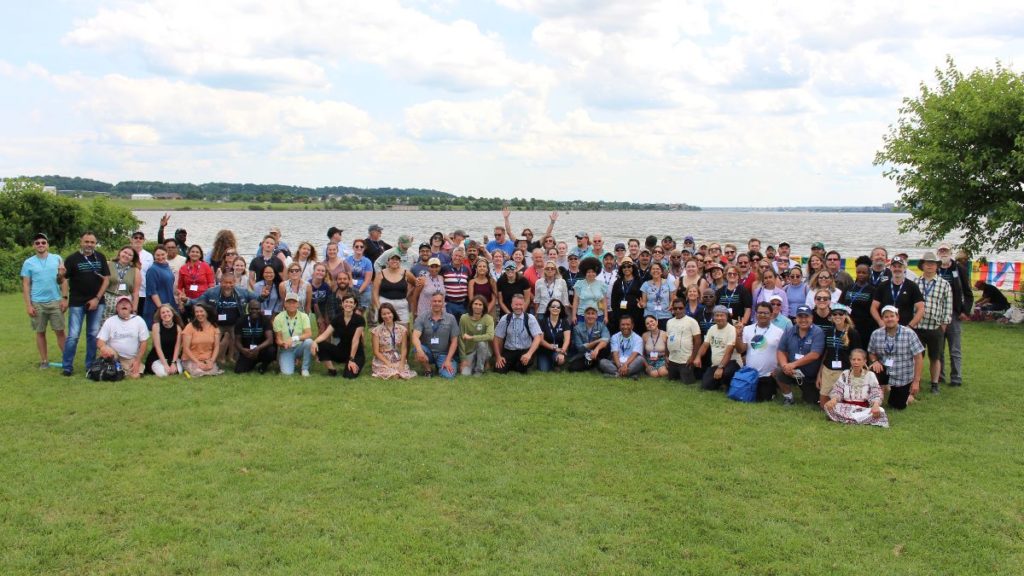 These meetings also afforded Waterkeeper groups the opportunity and venue to strategize amongst themselves and elevate ideas, asks, and opportunities to each other and the Alliance as a whole. Russian Riverkeeper staff attended the Pacific Regional meeting and was able to network and learn from other Waterkeepers in the Pacific Region, including 52 different groups that protect 859,000 square miles of waterways in the western United States. These were followed by late morning and afternoon breakout sessions, which highlighted the dangers of microplastics and best practices for compliant lobbying. There were also sessions on the Clean Water Act, science communications, working with tribes, and much more.
These meetings also afforded Waterkeeper groups the opportunity and venue to strategize amongst themselves and elevate ideas, asks, and opportunities to each other and the Alliance as a whole. Russian Riverkeeper staff attended the Pacific Regional meeting and was able to network and learn from other Waterkeepers in the Pacific Region, including 52 different groups that protect 859,000 square miles of waterways in the western United States. These were followed by late morning and afternoon breakout sessions, which highlighted the dangers of microplastics and best practices for compliant lobbying. There were also sessions on the Clean Water Act, science communications, working with tribes, and much more.
That evening, Tom Goldtooth — a highly respected and influential activist, speaker and leader — spoke to Waterkeepers over dinner. Tom spoke about the historic relationship between people and water, our relationships to each other and nature, and the ongoing battle to protect waters from corporate greed. Tom’s spiritual stories about the importance of tradition, respecting Mother Earth, and the timeless connection between women, water, and life were an apt lead into the Women of Waterkeeper gathering.
On Friday, we left the hotel behind for a Sacred Waters Ceremony at nearby Hains Point, where the Potomac River, Anacostia River, and Washington Channel converge.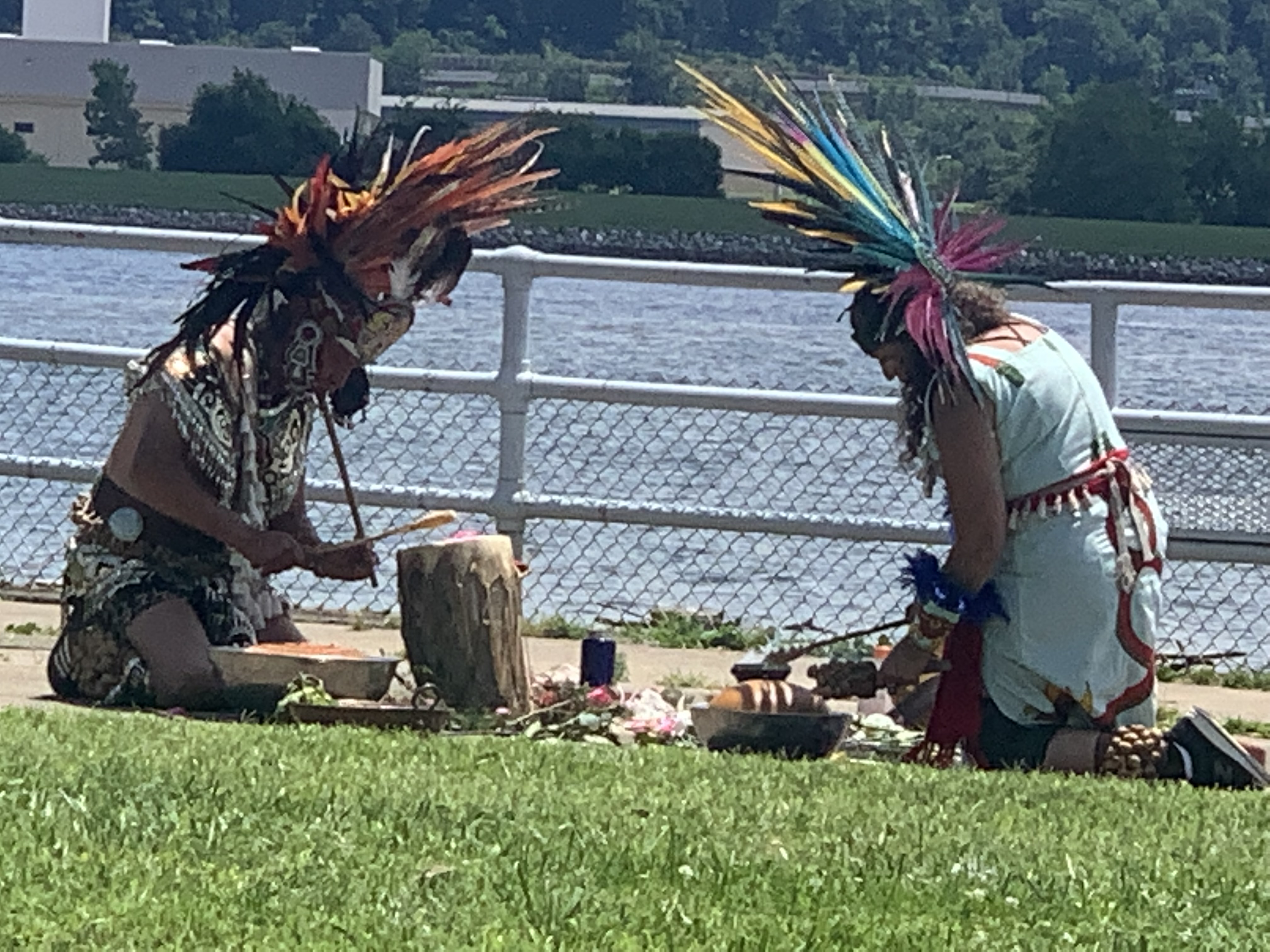
Among the many highlights, the water and stones brought by Waterkeepers from watersheds all over the world were combined and blessed. There was also a recognition of the Waterkeepers we have lost since 2018. The ceremony concluded with a joyous group dance session in the grass.
Meanwhile, across town there were meetings with staff from the U.S. Environmental Protection Agency’s Office of the Administrator, Office of Water, and Office of Public Engagement to talk about polyfluoroalkyl substances (PFAS-forever chemicals), concentrated animal feeding operations, the Clean Water Act, and more.
During Friday’s dinner, we learned how our climate predicament is a justice crisis. The session ended with a deeply informative Q&A with Waterkeepers from Nepal, India, the U.S., U.K., and other countries. The theme was advancing social and environmental justice by deepening democracy.
The Waterkeeper Alliance Annual Meeting was held on the fourth and final day of the conference. Highlights from the last year were shared and new projects were announced. Later in the day, more breakout sessions were held on the impacts of pollution on fisheries, media training, PFAS and microplastics, and how best to respond to harmful algal blooms.
Several days of learning and reconnecting culminated on Saturday night where we celebrated the amazing accomplishments of our fellow Waterkeepers at the Terry Backer Awards Banquet.
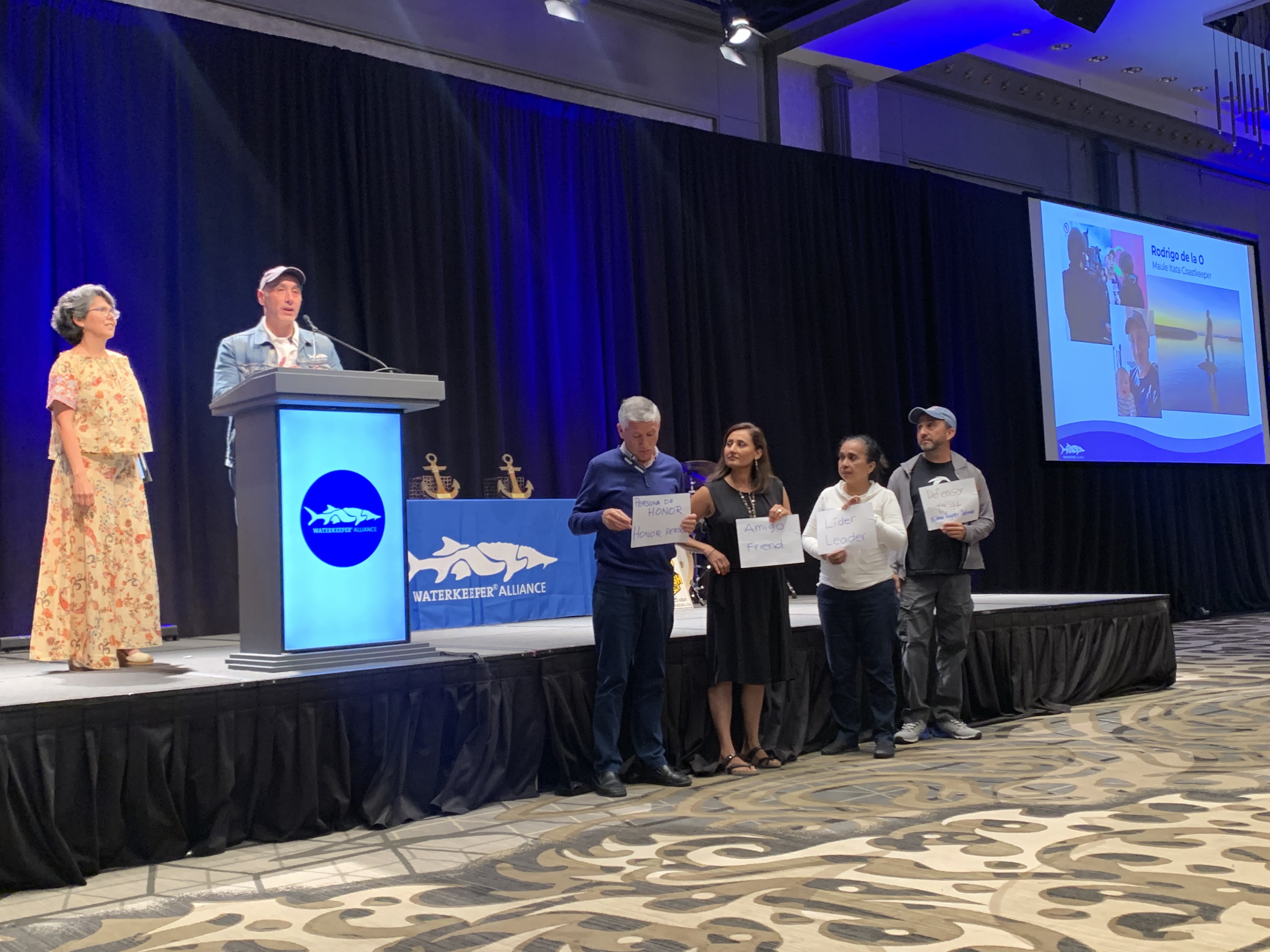
Margarita Diaz, Rodrigo de la O of Maule Itata Coastkeeper (Maule, Chile) was recognized for being a leader and community builder who works against the odds to defend his local waterways, including helping to stop a power plant and industrial salmon farming projects in Chile as well as standing strong against large real estate companies that would have destroyed a pristine area in Los Arcos de Calan. Kathy Phillips was recognized for her tireless commitment as a water defender and mentor.
John Wathen, who dubbed himself a “gray beard,” encouraged younger Waterkeepers to benefit from the knowledge of those who have come before them so that together we can carry on this important work for generations to come.
Since the 2020 winners had received their awards virtually, they were also honored this night. Although not with us in person, Marc Yaggi shared a bit of Kenya Lake Victoria Waterkeeper (Kenya) Leo Akwany’s indomitable spirit as a gifted facilitator who mentors, trains, and mobilizes a strong movement of more than 5000 advocates to conserve Lake Victoria wetlands and its waters. Known in the East Kali region as Nadiputr or “Son of Rivers,” Raman Kant of Hindon River Waterkeeper (Uttar Pradesh, India) and the former East Kali River Waterkeeper in India, was given the opportunity to accept his award in-person for his work to initiate and restore the health and flow of the East Kali River. Each honoree exemplified and shared a personal reflection of what Terry and the award meant to them. There wasn’t a dry eye in the house.
That’s a wrap! It certainly was inspiring to learn about all the great work happening worldwide to save our water and waterways. We hope all Waterkeepers returned home safely and look forward to seeing even more faces when we return in 2024!



